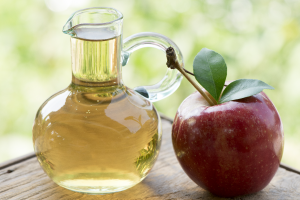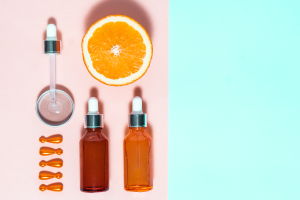

Are you interested in adding a facial serum to your skincare regimen but unclear of how to do so effectively? Don’t worry if you’re not familiar with this well-known skincare item. We’ll go over everything you need to know about face serums for women – what they are, how they can improve your skin, and when to use them.
What is a Facial Serum?
A formulation with a significant amount of active components is called a facial serum. Serums can be used to address a single issue or a combination of them. It does not include as many components as a moisturiser or cleanser. Instead, it offers stronger active ingredients that penetrate the skin more effectively and profoundly. A concentrated solution will benefit your skin by giving your complexion the boost it needs.
When you’re in your 30s, we recommend you to start incorporating the best serum into your skincare regimen. However, if you feel the need to start using a serum in your 20s, that is quite alright.
Different Types of Face Serums
Whether you want to target fine lines, dark spots, or dry skin, choosing the best serum for face can deliver results with regular use.The most common types of facial serums are the ones listed below.
1. Anti-Ageing Serum
The best anti ageing serums can help prevent or reduce the appearance of wrinkles and fine lines. These frequently include active ingredients like retinol (vitamin A) and niacinamide (vitamin B3).
Choosing a retinol-containing solution will help in promoting cell turnover, which slows down as you approach your 30s. A 2006 clinical trial from the University of Michigan found that regular topical vitamin A application results in smoother skin and a decrease in fine wrinkles. Together, these components lessen visible wrinkles while shielding skin from external contaminants/pollutants and free radicals.
Niacinamide (vitamin B3), on the other hand, is a versatile substance that boasts a number of advantages, including anti-ageing. According to a 2010 study published in the Journal of Clinical and Aesthetic Dermatology, niacinamide “may have the capacity to boost skin collagen and protein production.” This is important since collagen production begins to diminish by 1% annually once a person reaches their 30s.
2. Brightening Serums
Brightening serums aim to minimise discolouration and hyperpigmentation. Ascorbic acid (vitamin C), an antioxidant that prevents the development of melanin, is a common component of these serums. For lightening dark spots and balancing skin tone, niacinamide is another well-liked substance.
Due to the possibility of oxidation, pure vitamin C has a limited shelf life because it is not stable. Thankfully, new vitamin C compounds are being created to stop serums and other beauty products from losing their effectiveness. Additionally, stabilised vitamin C compounds are easier for the skin to absorb than pure vitamin C, according to a 2013 article from the Indian Dermatology Online Journal.
In the aforementioned 2010 study from the Journal of Clinical and Aesthetic Dermatology, vitamin B3 niacinamide was “clinically defined” as improving uneven skin tone by decreasing hyperpigmentation and blotchiness. Niacinamide also contributes to skin’s brightness. This results in a complexion that is more radiant and lively.
3. Hydrating Serums
The best hydrating serums give your skin an extra dose of moisturisation. They are applied in addition to common moisturisers. The main component of moisturising serums is hyaluronic acid.
One of the best qualities of hyaluronic acid is its capacity to store 1,000 times its weight in water. Additionally, this component draws water from its surroundings when acting as a humectant. Hyaluronic acid should be applied in a moist environment such as your bathroom, following a hot shower. Otherwise, your face will get dry since the hyaluronic acid can draw moisture from your skin.
4. Exfoliating Serums
Exfoliating frequently is advised to avoid dullness and outbreaks on your skin. There are two types of exfoliation: chemical and physical. A grainy scrub, that is a physical exfoliant, can be used to manually brush away dead skin cells. For those with sensitive skin or acne-prone skin, this can be too harsh. In contrast, a chemical exfoliant is a less abrasive option that is often manufactured as a serum.
Alpha-hydroxy acids (AHAs), beta-hydroxy acids (BHAs), or poly-hydroxy acids (PHAs) are present in exfoliating serums. Popular AHA glycolic acid removes dead skin cells to treat the skin at its surface level. Blackheads, blemishes, and other impurities are removed from pores by salicylic acid, a popular BHA that penetrates beneath the skin’s surface.
According to a 2004 study by the Vitiligo and Pigmentation Institute of Southern California, PHAs such as gluconolactone have effects that are comparable to those of AHAs but are milder. Look for PHA-containing serums if you have sensitive skin.
5. Firming Serums
Sagging skin is the focus of firming face serums. Loose, coarse skin is frequently caused by a decrease in collagen, elastin, and ceramide (moisture) production as you get older. Use a facial serum that is created with components that will encourage the formation of collagen and increase moisture such as retinol and niacinamide (like hyaluronic acid).
How to Choose the Best Face Serum?
There are different kinds of face serums. The active components in a serum are crucial in determining whether you should use it during the day or at night for skincare.
1. Day Serums
The optimal time of day to use a vitamin C-containing face serum is during the day. Since vitamin C is an antioxidant, it can shield your skin from other pollutants and free radicals while you’re out and about. Free radicals are unstable atoms that can harm skin cells. Additionally, vitamin C can protect your skin from photodamage, such as fine lines and dark spots, when used in conjunction with sunscreen. (However, SPF is also essential because vitamin C can make your skin more photosensitive on its own.)
2. Night Serums
Even though you could use and wear a retinol serum during the day, it’s advised that you do it at night, especially if you’re incorporating it into your skincare routine for the first time. Retinol makes your skin more sensitive to sunlight, much like vitamin C does. If you decide to use this ingredient in your skincare regimen, you must wear sunscreen every day.
You should also include exfoliating acids (AHAs, BHAs, and PHAs) in your evening routine. Make sure you sufficiently cover your skin from the sun during the day as these acids make your skin more sensitive to UV radiation.
3. Anytime Serums
Facial serums containing hyaluronic acid can add extra hydration during the day or at night. Hyaluronic acid can pull moisture from the air and even away from your skin in a dry environment, so it’s important to consider your environmental climate while deciding whether to use it.
It’s okay to use niacinamide serums anytime of day. Niacinamide does not make your skin photosensitive like retinol or vitamin C do.
Conclusion
Using facial serums for the first time can be intimidating. There are numerous varieties that address various issues. However, using the best serum for face as part of your skincare regimen might be beneficial regardless of your skin type. Serums might be one of the best ways to improve your natural beauty and radiance when used properly.
Frequently Asked Questions About Facial Serum
Q2. How does a serum help the skin on your face?
A serum can help address and manage specific concerns for your skin including acne, wrinkles, dullness, skin dryness, and so on.
Q3. Is it safe to use serum for your face everyday?
Yes, it is safe to use a serum on a daily basis. Add it as a step to your skin care routine to get the most out of them.




